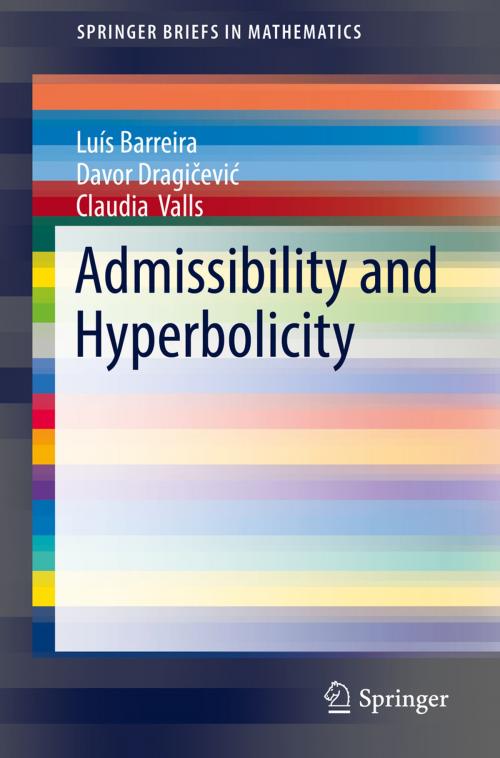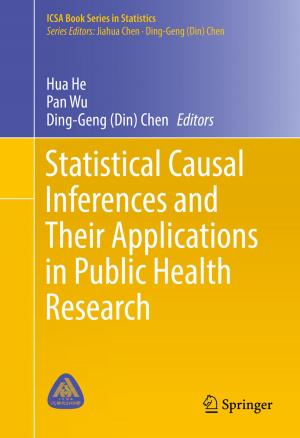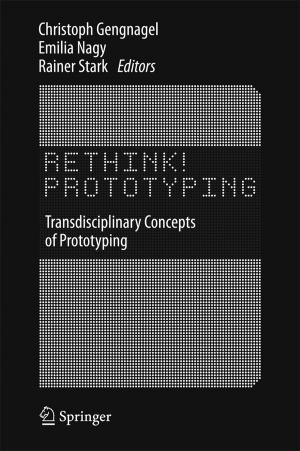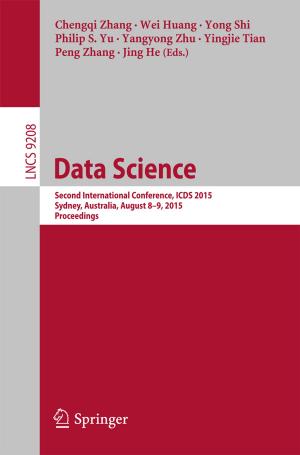Admissibility and Hyperbolicity
Nonfiction, Science & Nature, Mathematics, Differential Equations, Mathematical Analysis| Author: | Luís Barreira, Davor Dragičević, Claudia Valls | ISBN: | 9783319901107 |
| Publisher: | Springer International Publishing | Publication: | May 2, 2018 |
| Imprint: | Springer | Language: | English |
| Author: | Luís Barreira, Davor Dragičević, Claudia Valls |
| ISBN: | 9783319901107 |
| Publisher: | Springer International Publishing |
| Publication: | May 2, 2018 |
| Imprint: | Springer |
| Language: | English |
This book gives a comprehensive overview of the relationship between admissibility and hyperbolicity. Essential theories and selected developments are discussed with highlights to applications. The dedicated readership includes researchers and graduate students specializing in differential equations and dynamical systems (with emphasis on hyperbolicity) who wish to have a broad view of the topic and working knowledge of its techniques. The book may also be used as a basis for appropriate graduate courses on hyperbolicity; the pointers and references given to further research will be particularly useful.
The material is divided into three parts: the core of the theory, recent developments, and applications. The first part pragmatically covers the relation between admissibility and hyperbolicity, starting with the simpler case of exponential contractions. It also considers exponential dichotomies, both for discrete and continuous time, and establishes corresponding results building on the arguments for exponential contractions. The second part considers various extensions of the former results, including a general approach to the construction of admissible spaces and the study of nonuniform exponential behavior. Applications of the theory to the robustness of an exponential dichotomy, the characterization of hyperbolic sets in terms of admissibility, the relation between shadowing and structural stability, and the characterization of hyperbolicity in terms of Lyapunov sequences are given in the final part.
This book gives a comprehensive overview of the relationship between admissibility and hyperbolicity. Essential theories and selected developments are discussed with highlights to applications. The dedicated readership includes researchers and graduate students specializing in differential equations and dynamical systems (with emphasis on hyperbolicity) who wish to have a broad view of the topic and working knowledge of its techniques. The book may also be used as a basis for appropriate graduate courses on hyperbolicity; the pointers and references given to further research will be particularly useful.
The material is divided into three parts: the core of the theory, recent developments, and applications. The first part pragmatically covers the relation between admissibility and hyperbolicity, starting with the simpler case of exponential contractions. It also considers exponential dichotomies, both for discrete and continuous time, and establishes corresponding results building on the arguments for exponential contractions. The second part considers various extensions of the former results, including a general approach to the construction of admissible spaces and the study of nonuniform exponential behavior. Applications of the theory to the robustness of an exponential dichotomy, the characterization of hyperbolic sets in terms of admissibility, the relation between shadowing and structural stability, and the characterization of hyperbolicity in terms of Lyapunov sequences are given in the final part.















